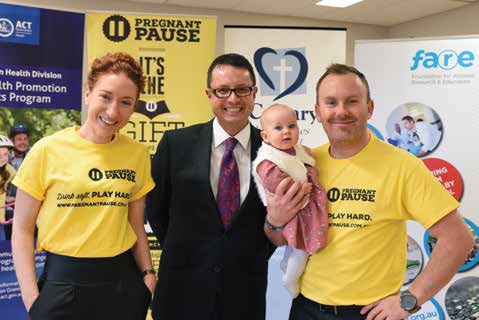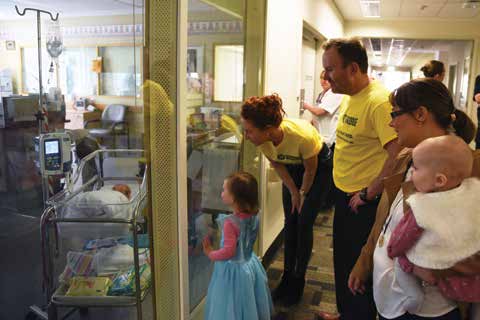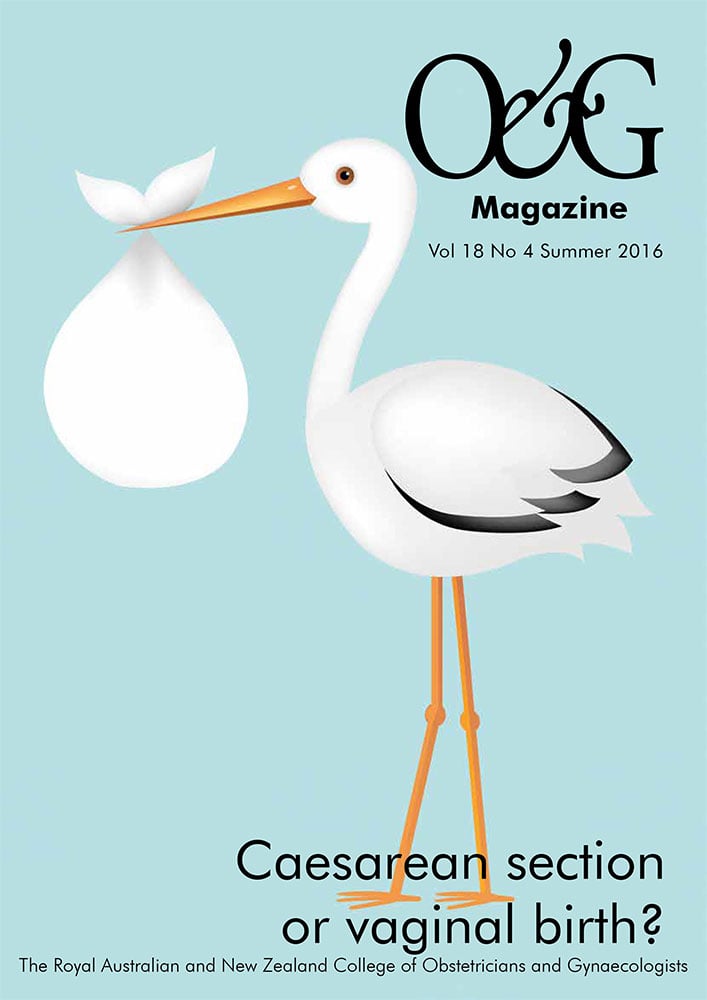An innovative health campaign is giving the 300 0001 babies born in Australia each year the best-possible start in life by asking Australians to sign up and wine down.
The National Health and Medical Research Council (NHMRC) alcohol guidelines state that for women who are pregnant or planning a pregnancy, drinking no alcohol is the safest option. However, nine months, or 270 days, can be a long time to go without alcohol. This can be a challenge for mothers-to-be, especially when alcohol and socialising often go hand-in-hand and there’s a lot of anecdotal misinformation adding to the confusion.
Pregnant Pause is an initiative of the Foundation for Alcohol Research and Education (FARE), and takes a novel approach to promoting these guidelines. The innovative health-promotion campaign encourages participants to go alcohol free during their pregnancy or the pregnancy of a loved one. The campaign seeks to make it easier on mothers-to-be, by building a strong support system that will help families achieve an alcohol-free pregnancy.
Pregnant Pause reinforces the advice given by health professionals and raises awareness of the various risks associated with alcohol consumption during pregnancy, including miscarriage, still or premature birth, low birth weights, and fetal alcohol spectrum disorders (FASD). FASD is the umbrella term for a range of lifelong conditions characterised by a range of physical, cognitive, intellectual, learning, behavioural, and social problems.2 FASD are the leading preventable cause of non-genetic, developmental disability in Australia.3
Unfortunately, awareness of the effects of alcohol consumption during pregnancy and the recommendation to abstain remains low.4 Data from the National Drug Strategy Household Survey show 47 per cent of Australian women drink alcohol before discovering they were pregnant, and one-in-five women continue to do so after becoming aware of their pregnancy.5 Another study showed that 33 per cent of pregnant women reported an intention to engage in drinking behaviours that put both themselves and their offspring at risk.6
Pregnant Pause was developed to influence these attitudes and behaviours, in order to reduce and prevent the number of alcohol exposed pregnancies. Research by Health Technology Analysts shows that public education campaigns can prevent between one and three per cent (lower and upper estimates of effectiveness) of cases of FASD each year.7 Unlike other efforts that focus solely on the expectant mother, Pregnant Pause is a campaign everyone can take part in. The initiative is targeted at the broader community, including those around the woman who can influence her behaviour.

RANZCOG President Prof Steve Robson (centre) with Pregnant Pause ambassadors Kristen Henry and Rod Cuddihy from Canberra’s Mix 106.3 breakfast radio crew.
One proven strategy for achieving alcohol-free pregnancies is to strengthen the support network of a mother-to-be. Partners in particular have significant influence, with 77 per cent of women who drink during pregnancy saying that they did so with their partner.8 About one-third of Australian women would be less likely to drink alcohol during pregnancy if their partner or spouse encouraged them to stop or cut back (38%), or if their partner also stopped drinking alcohol (30%).9
It is really helpful if partners, family members and friends show their support for a pregnant loved one by saying, “we’re with you on this and we’re going to take a pause from drinking as well”. At its heart, Pregnant Pause is a positive and empowering campaign. This is about encouraging Australians to support each other and give newborn babies the best-possible start in life. It’s never too late to cut down or stop drinking alcohol during pregnancy. Even a small change can make a big difference for both mum and baby, ensuring the health of the next generation of children.
If you would like to get involved, there is a range of educational and promotional Pregnant Pause materials available to order free of charge. These posters, flyers and other collateral have everything you need to pass on this important health message to your patients and other contacts in your network, and can be displayed to show your support and spark important conversations.

Pregnant Pause ambassadors Kristen and Rod at the Pregnant Pause ACT launch at John James Calvary Hospital maternity ward.
For more information about Pregnant Pause visit www.pregnantpause.com.au.
Pregnant Pause is an initiative of the Foundation for Alcohol Research and Education (FARE). The campaign is supported by the Australian Capital Territory (ACT) Government under the ACT Health Promotion Grants Program, and proudly endorsed by health professionals, including the Australian Medical Association ACT branch.
References
- Australian Bureau Statistics (ABS). Birth, Australia. Commonwealth of Australia.[cited 2016 Sep 26]. Available from www.abs.gov.au/AUSSTATS/[email protected]/mf/3301.0.
- Russell V. Living with Foetal Alcohol Spectrum Disorder: A guide for parents and caregivers. Drug Education Network Tasmania, Communities for Children and Stronger Families; 2008.
- O’Leary C. Foetal Alcohol Syndrome: A literature review. National Alcohol Strategy 2001 to 2003–04 Occasional Paper. Canberra: Commonwealth Department of Health and Ageing; 2002.
- Livingston M. Perceptions of low-risk drinking levels among Australians during a period of change in the official drinking guidelines. Canberra: Centre for Alcohol Policy Research (CAPR), and the Foundation for Alcohol Research and Education (FARE); 2012.
- Australian Institute of Health and Welfare. National Drug Strategy Household Survey report, July 2011. Canberra: AIHW. 2010.
- Pettigrew S, Jongenelis M, Chikritzhs T, et al. A comparison of alcohol consumption intentions among pregnant drinkers and their nonpregnant peers of child-bearing age. Substance Use & Misuse. 2016 DOI: 10.3109/10826084.2016.1172641.
- Health Technology Analysts Pty Ltd. Fetal Alcohol Spectrum Disorder: exploratory analysis of different prevention strategies in Australia and New Zealand. Canberra: Report for Food Standards Australia New Zealand; 2010.
- McBride N, Carruthers SJ, Hutchinson D. Reducing alcohol use during pregnancy: Listening to women who drink as a prevention starting point. A formative intervention research study. Global Health Promotion. 2012;19(2):102-114.
- Peadon E, Payne J, Henley N, et al. Attitudes and behaviour predict women’s intention to drink alcohol during pregnancy: the challenge for health professionals. BMC Public Health. 2011.






Leave a Reply